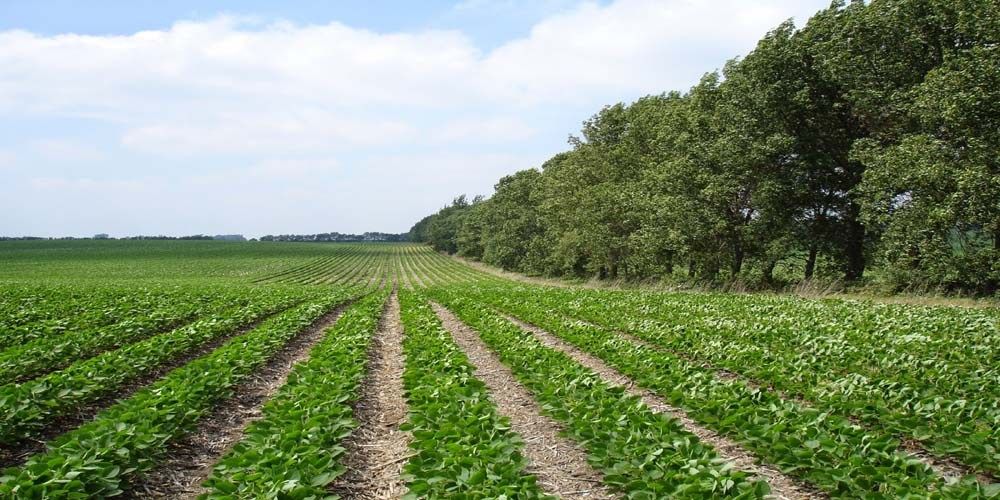Reduce Use of Pesticides without Compromising Crop Yield
Bharatwa Editor
. 3 min read

The usage of artificial pesticides not only depletes the potential of the soil but it is detrimental to human health because of high levels of these harmful chemicals in the agricultural produce, which after consumption by living beings, animals and humans alike, have dire effects. The rainwater from the soil with excessive quantities of pesticides seeps into the groundwater and the water bodies, thereby resulting in the death of fish in the water bodies.
Hence, farmers are making the safe choice of using Bio-fertilizers or organic fertilizers that are a foil to artificial chemical fertilizers. However, a growing concern is maintaining the adequate agricultural yield even without the use of agricultural pesticides.
Also Read:
1. The procedure of Soil Testing & Sampling for Laboratory Analysis
2. Natural & Homemade Insecticides to Save your Farm from Pests
How Conventional Farmers will make the Transition to Organic
In today's agricultural scenario if farmers are given choice between organic and conventional farming, then very few will agree to reduce the use of pesticides and will go for organic, because they may think "Oh! we'll all starve, and more fields have to be used to get the desired result or without pesticides, it is going to be a big loss.”
But in fact this is the myth, reduction in pesticide usages do not really mean higher costs and fewer choices, it also not mean encouraging only indigenous styles and boycotting rest. This is today's most discussed topic and big farming companies have planned substantial reduction in their corporate programs. Even meteorological computer programs have been developed to encourage optimum use and make the reduction with the help of technology and field understanding.
Pesticide usage needs to be reduced to overcome the decline in biodiversity and to ensure scientifically most accurate approach. If practiced properly then Organic farming can also improve crop yields, food security, and farmer incomes.
Ways to increase agricultural yield without using pesticides:
Agricultural Sustainability and Intensive Crop Production Practices
As opposed to the extensive application of artificial pesticides and insecticides, this is a method that is ecologically sound and hence does not harm the environment. Unlike commercial pesticides which damage the environment, sustainable agriculture adheres to the environment and its needs by ensuring that these ecological practices can be sustained over a period of time. For instance, using cover crops can provide shade for other planted crops, besides providing nitrogen fixation for the soil and keeping away the pests.
Improving Modern Agriculture through 'Intercropping' and Multicropping
Unlike Mono-cropping which is the extensive growing of one particular crop in a plot of land year after year, thereby depleting certain chemicals and nutrients from the soil and rendering it unfit for cultivation after a few years, multi-cropping is a better option for farmers. Two ways of carrying this out are Crop-rotation and Intercropping.
In crop rotation, alternating crops are planted in a plot of land from one season to another. In Intercropping, a healthy and well-suited combination of crops is planted in a plot of land, in such a way that one doesn’t deplete the soil nutrients required by the other. Multi-cropping increases the soil health reduces pests and increases water retention capacity of the soil.
Integrated Pest Management (IPM) has the profound effect on Pest Damage and Yield
One of the most crucial concerns of the farming practices today is the minimal usage of the insecticides, pesticides and the herbicides and microbicides for the elimination of insects, pests, weeds, and bacteria, respectively, from the soil. Over-application of these artificial industrial pesticides leads to pesticide residues in the consumers of the agricultural produce. Hence IPM is the application of pest management procedures.
For instance, Companion planting is a way in which plants that are a more attractive to pests than the primary producers are grown alongside the main crop so that it is saved from pests.
Also Read:
1. Technological Self-Reliance: Indian dependency on Pesticides
2. Essential Tips to Keep Dairy Cows Healthy & Happy
These are certain ways in which pets can be controlled without the excessive usage of harmful pesticides and herbicides that have severe impacts on the producer, consumer as well as the soil. Predators such as ladybugs, nematodes or microscopic worms are used in order to destroy the pests at an early stage of growing up. It is definitely not a sustainable practice to deplete the soil as it would be rendered unfit for further cultivation of crops.
More Stories from
15 Pakistani Movies That Will Make you Forget Bollywood
We have compiled the ultimate list of top 15 Pakistani movies that you shouldn't miss, these left a greater social impact.
Film Mafia, Fueling the Fire and Enraging Masses
Film Mafia of Bollywood is Fictionalizing history, Rubbishing Religion, Promoting Anti-National Spirit, Mocking Hindu Gods, Award Wapsi and Intolerance drive
How did India respond to Donald Trump's 25% tariff penalty on India?
Trade tensions between the United States and India have sharply increased as a result of this recent development. Know how India responds to Donald Trump's 25% tariff penalty on India.
Geoffrey Hinton's AI Warning: The Most Dangerous Invention Ever
AI is both beneficial and dangerous, depending on how it is developed, deployed, and regulated.
Unbelievable Facts about World History that will surprise you
Human history and the natural world are filled with mysteries, marvels, and strange truths that challenge our understanding. In this article, we will explore some unbelievable facts about world history.





